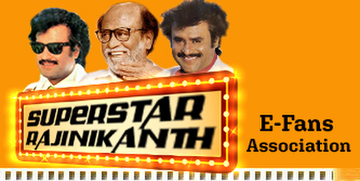|
Thappu Thalangal(1978)

Thappu Thalangal is a 1978 Tamil feature film directed by K. Balachander and produced by R. Venkataraman starring Rajinikanth, Saritha and Premila Joshi in the lead roles. Kamal Haasan made a special appearance in the film. It was made simultaneously and released in Kannada as Thappida Thala. The film was remade in Malayalam as Kazhukan. The film is a saga of emotional and selfish world of human feelings.
One of K.Balachander's brilliant and timeless classics. This film boldly demonstrates the classic reflection of life while catering mostly to the ponderers of the unusualities in the conservative South Indian society.
Natually composed in black and white with minimal background music and songs, the film diligently captures the audience's attention for about 2 hours. As far as the film goes, the director aptly maintains the original emotions of the artists. There is remarkable attention to detail from all corners of film making that were a part of this movie. Probably, one of the best performances by Rajinikanth and Sarita.
PLOT:
The film shows how difficult it is to change, to break on through to the other side and how the society scrupulously works against the dreams of the "lesser mortals".
STORY:
Devu (Rajinikanth), a local thug whose weapon of choice is a bicycle chain he sports casually around the neck. Devu charges ₹ 30 to slice a finger, ₹ 300 to chop a hand, ₹ 3000 for the leg, and ten times as much to dispose off the whole body. On one of his nightly rounds, Devu is pursued by a cop and seeks refuge at a whorehouse run by a hooker Sarasu, played to perfection by Saritha. Despite her vehement protests, he stays put and leaves only at daybreak, but her persistent cough stays with him. At a theatre, Devu watches an advertisement for Glycodin Cough Syrup and proceeds to buy her a bottle. Devu and Sarasu bond over the cough syrup and philosophise late into the night, exchanging notes on their immoral lifestyles.
Devu's assault on a trade union leader delivering medicine to a critically ill worker leads to a mishap. Watching the wailings of the widow of the worker, Devu is traumatised and breaks down at Sarasu's place. In an inspired moment, he suggests they remap their lives and chart a moral course. Sarasu is attracted by the notion of giving up prostitution and leading a normal life as Devu's wife, though she wonders if they'll be able to pull it off. The couple go to great lengths to secure a job for Devu and lead a normal life, but there are too many skeletons in the closet. Devu is no longer feared for his might, and Sarasu's past clientele continue to haunt the joint. Sarasu gets a loan for Devu from his evil brother Soma, who continues to harass her on that pretext. In a particularly traumatic sequence of events, Sarasu is raped by Soma as a helpless Devu watches, pinned down by Soma's henchmen. The couple resolve to repay Soma's loan, and Devu undertakes a botched robbery attempt. Devu is imprisoned and in his absence, Sarasu has an abortion. The couple's plans for normality never attain fruition. The inevitable return to lives of vice is especially tragic and heartbreaking.
Devu's inherent goodness is contrasted with his "evil twin", a stepbrother Soma who thwarts his every attempt at morality and finally succumbs at Devu's hands. Kamalhaasan has an interesting cameo as a Hindi speaking client of Sarasu. Balachander skewers middle-class morality and takes potshots at the hypocrisy of do-gooders. In the final analysis, the film is an indictment of society at large, for not allowing lesser mortals to rejoin society and return to a life of normality.
தப்பு தாளங்கள் - ஆனந்த விகடன் விமர்சனம்
இது மாதிரியான 'தலைப்பு விலகும்' விவகாரங்களை மலையாளப் பட டைரக்டர்கள் மட்டுமே வெளிச்சம் போட்டுக் காட்டுவார்கள். தமிழுக்கு இது புதுசு. எடுத்துக்கொண்ட கதையை மேலெழுந்த வாரியாக எடுத்துச் சொல்லி சமாளிக்காமல், கொச்சையான சம்பவங்கள், பச்சையான நகைச்சுவைகள் - இவற்றைக் காட்டியே தீருவேன் என்று கச்சை கட்டிக் கொண்டு இறங்கியிருக்கிறார் இயக்குநர். துணிச்சலான முயற்சிதான். ஆனால் காட்சிகளும் ஹாஸ்யங்களும் உச்சமாகப் போகும்போது நாம் கூச்சப்பட வேண்டியதாகிறது - மனைவியே பக்கத்தில் உட்கார்ந்திருந்தாலும்! ஆனாலும், அசைக்க முடியாத தன்னம்பிக்கை, அதல பாதாள அனுபவம், எக்கச்சக்க துணிவு இவற்றுடன், எடுத்துக் கொண்ட கதையின் அடிவேர் வரை சென்று புரட்டியிருப்பதால், இதில் இருக்கும் பச்சைத் தனத்தையும், விரசபாவத்தையும் குறிப்பிட்டு விமரிசனம் என்ற பெயரில் ஒப்பாரி வைப்பது அர்த்தமற்றது .
அடியாள் தேவு, 'தொழில் ' பார்க்கும் சரசு, கள்ளச் சாராயப் பேர்வழி சோமன், 'தரகர் ' வேலை பார்க்கும் வீரமணி - நான்கு பேரும் நான்கு துருவங்கள். இவர்களை 'எக்ஸ்ரே ' எடுத்துக் காட்டியிருக்கிறார் பாலசந்தர் !
காட்ட வேண்டியதை நிர்வாணமாகக் காட்டிவிட்டு அங்கங்கே அறிவிப்பு வாசகங்கள் எதற்கு? நன்றாக நடக்கத் தெரிந்த குழந்தைக்கு நடை வண்டி கொடுப்பதுபோல் இருக்கிறது. இருந்தாலும், 'நாய் விற்ற காசு குரைத்தது' 'வசனம் நீக்கப்பட்டது' இவை இரண்டும் ரசிக்கத்தக்கவை. குறிப்பாக, வசனம் நீக்கப்பட்டது 'கார்டு வரும் போது சிலர் வசனங்களை டைரக்டர் நீக்கி விட்டதாகவும், சிலர் சென்ஸார் நீக்கி விட்டதாகவும் நினைத்துக் குழம்புவது சுவாரஸ்யமான குழப்பம்!
சோமனைக் கிணற்றடியில் கொலை செய்துவிட்டு வந்த ரஜினி, மரியாவின் பிரவேசத்தைப் பார்த்து மலைத்து நிற்பதும், நிலைமை தெரிந்து சிரிப்பை அழுகையாக மாற்றிக் கொள்வதும் மனத்தில் நிற்கும் காட்சி. தன் மகளை ஹோட்டல் அறையில் விபசாரியாகப் பார்த்த புரோக்கர் அதைப் பொறுத்துக் கொள்ள முடியாமல் குடும்பத்தோடு மடிந்து போவது, எந்த ஈனத் தொழில் புரிபவனுக்கும் தன்மானம் உண்டு என்பதற்கு எடுத்துக்காட்டு.
பூரண கர்ப்பிணியான சரசுவை தேவுவின் கண் எதிரிலேயே கற்பழிப்பதாகக் காட்டப்படும் காட்சி ஏ ஒன்! தேவுவின் ரியாக்ஷனிலேயே அங்கு நடக்கும் கொடுமையை நாம் பூரணமாக உணர முடிகிறது. இந்த இடத்தில் பாலசந்திரன் முழுமை பெற்றுப் பௌர்ணமி சந்திரனாகிறார்!
அந்தக் கால பாணியில் ரஜினி, மலை மேடு பள்ளங்களில் நடந்து கொண்டே பாடுவதும், கடைசியில் ரஜினி போகும் போலீஸ் வண்டியிலேயே ஹீரோயினையும் ஏற்றுவதும் ரொம்ப செயற்கை.
அரசியல்வாதியைப் பற்றிப் பேசும் போது, உனக்கு இவரைத் தெரியுமா? ” என்று தேவு கேட்க, "அவர் பேசி முடிஞ்சதும் இங்கேதானே வருவார்" என்று படுகாஷுவலாக சரசு பதில் சொல்வது கேலியான குத்தல்!
இதற்கு முன்னால் பாலசந்தர் இயக்கிய படங்களில் ஒவ்வொரு காட்சியும் டைரக்டர் இதோ இருக்கிறார்' என்று பறைசாற்றிக் கொண்டிருக்கும். ஆனால் இந்தப் படத்தில் நாம் டைரக்டரை மறந்து காட்சியோடு ஒன்றிப் போகிறோம். இது டைரக்டருக்கு ஒரு வெற்றியே !
விகடன் விமரிசனக் குழு
விகடன் மதிப்பெண் : 52
( 19.11.1978 தேதியிட்ட ஆனந்த விகடன் இதழிலிருந்து ... )
| 


